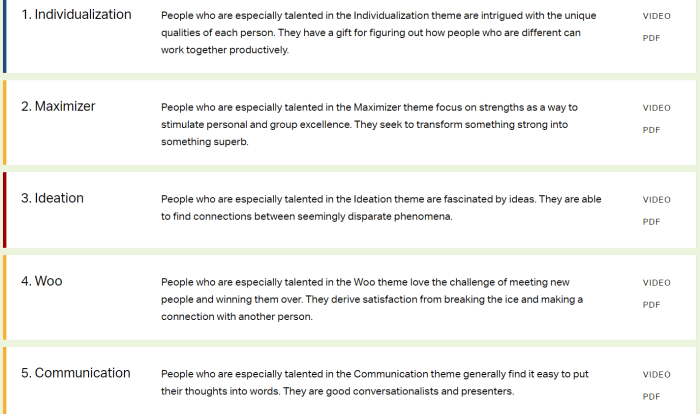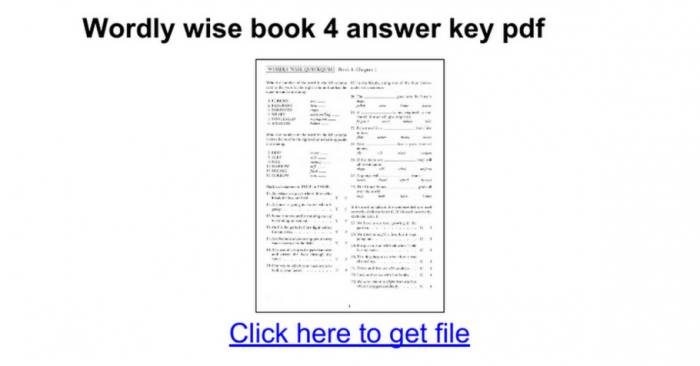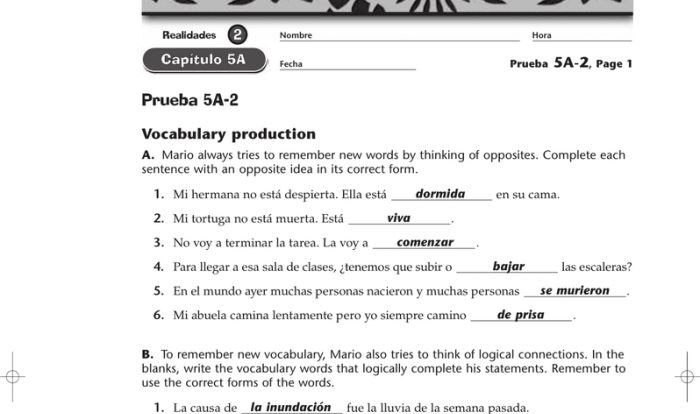Embark on a comprehensive exploration of the Unit 2 APHG Practice Test, a crucial step in your preparation for the Advanced Placement Human Geography exam. This practice test offers invaluable insights into the test’s structure, content, and strategies to help you achieve your academic goals.
Delve into the intricacies of the test format, including the number and types of questions you can expect. Gain a clear understanding of the specific content areas covered, such as population dynamics, land use patterns, and economic development trends. Equip yourself with effective study strategies to master key concepts and practice answering various question types.
Overview of Unit 2 APHG Practice Test
The Unit 2 APHG practice test is a comprehensive assessment tool designed to evaluate students’ understanding of the key concepts and topics covered in Unit 2 of the AP Human Geography course. The test is structured to mirror the format and content of the actual AP exam, providing students with an opportunity to practice their skills and identify areas where they need additional support.The
test covers a wide range of topics related to population geography, including population distribution, growth, and change; population structure and characteristics; and population policies and issues. Students will be expected to demonstrate their knowledge of the theories and models used to explain population patterns and trends, as well as their ability to analyze and interpret data related to population change.
Key Concepts and Topics Covered
The Unit 2 APHG practice test covers the following key concepts and topics:
- Population distribution and density
- Population growth and change
- Population structure and characteristics
- Population policies and issues
- Theories and models of population change
- Data analysis and interpretation related to population change
Exam Format and Content
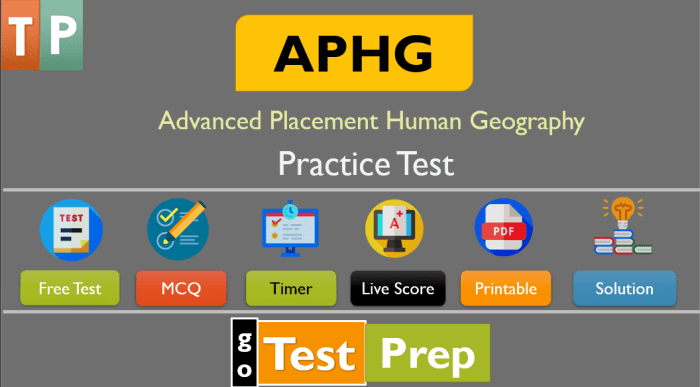
The AP Human Geography exam is divided into two parts: multiple-choice and free-response. The multiple-choice section consists of 60 questions that students have 60 minutes to complete. The free-response section consists of three questions that students have 90 minutes to complete.The
specific content areas tested on the exam include:* Population
- Land use
- Economic development
- Cultural patterns and processes
- Political geography
Students can expect to see a variety of question types on the exam, including:* Multiple-choice questions
- Short answer questions
- Essay questions
- Document-based questions
Study Strategies
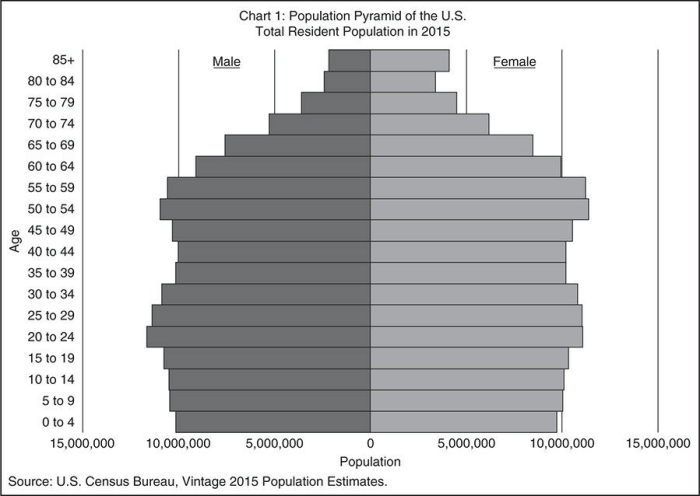
To excel in your AP Human Geography exam, implementing effective study strategies is crucial. This involves mastering the key concepts, practicing various question types, and managing time wisely during the exam.
Begin by understanding the core concepts thoroughly. Create flashcards, take notes, and actively engage with the material. Seek clarification from your teacher or peers when needed. To enhance retention, utilize spaced repetition, reviewing the material at increasing intervals.
Practice and Review
Practice is essential for success. Solve different types of questions, including multiple-choice, short answer, and free-response. Analyze your mistakes to identify areas for improvement. Utilize practice exams to simulate the actual exam experience and gauge your readiness.
Time Management
Time management is crucial during the exam. Allocate time wisely for each question type, based on its difficulty and point value. Prioritize answering questions you are confident about first. If you encounter a challenging question, move on and return to it later if time permits.
Topic: Sample Questions and Answers: Unit 2 Aphg Practice Test
This section presents a selection of sample questions from the practice test, along with detailed explanations of the correct answers. These examples highlight common misconceptions and pitfalls to avoid, providing valuable insights for students preparing for the exam.
Sample Question 1:
Which of the following is NOT a characteristic of a developed country?
- High levels of industrialization
- Advanced healthcare systems
- Low levels of poverty
- Limited access to technology
Correct Answer: D. Limited access to technology
Developed countries are typically characterized by high levels of industrialization, advanced healthcare systems, and low levels of poverty. Access to technology is generally widespread and not a defining characteristic of a developing country.
Sample Question 2:
What is the primary cause of deforestation in the Amazon rainforest?
- Logging for timber
- Cattle ranching
- Mining
li>Urban expansion
Correct Answer: B. Cattle ranching
Cattle ranching is the leading cause of deforestation in the Amazon rainforest, as vast areas of forest are cleared to create pastures for cattle grazing. Logging for timber, mining, and urban expansion also contribute to deforestation, but to a lesser extent.
Take a break from the challenging unit 2 APHG practice test and explore the capitulo 3a 1 answer key to solidify your understanding of the concepts. Return refreshed and tackle the remaining practice questions with renewed confidence.
Sample Question 3:, Unit 2 aphg practice test
Which of the following is a benefit of globalization?
- Increased economic growth
- Improved living standards
- Cultural exchange
- All of the above
Correct Answer: D. All of the above
Globalization offers numerous benefits, including increased economic growth through increased trade and investment, improved living standards due to access to goods and services, and cultural exchange that fosters understanding and appreciation of different cultures.
Sample Question 4:
What is the difference between absolute and relative location?
Correct Answer:
Absolute location refers to the exact geographic coordinates of a place, while relative location describes a place’s position in relation to other landmarks or features.
Sample Question 5:
What is the purpose of a thematic map?
Correct Answer:
A thematic map is designed to highlight a specific theme or topic, such as population density, climate patterns, or economic activity. It uses symbols, colors, and other visual elements to present data and information related to the chosen theme.
Topic: Tips for Success

Preparing for the AP Human Geography exam can be daunting, but with the right strategies and a dedicated approach, you can excel. Here are some practical tips to help you improve your performance:
- Master the Concepts:Thoroughly understand the core concepts covered in the course. This forms the foundation for answering questions accurately.
- Practice Regularly:Engage in consistent practice through mock exams, sample questions, and review materials. Repetition strengthens your understanding and builds confidence.
- Manage Time Wisely:Familiarize yourself with the exam format and allocate time wisely during the test. Each section has a specific time limit, so practice managing your time effectively.
- Read Instructions Carefully:Before answering any question, take a moment to read the instructions carefully. This ensures you understand the question’s requirements and avoid misunderstandings.
- Approach Different Question Types Strategically:The exam includes multiple-choice, short answer, and free-response questions. Each type requires a specific approach. For multiple-choice questions, eliminate incorrect answers first. For short answer questions, be concise and provide specific evidence. For free-response questions, organize your thoughts, support your arguments with evidence, and write in clear and coherent prose.
- Develop Critical Thinking and Problem-Solving Skills:The exam tests your ability to think critically and solve problems. Practice analyzing data, drawing inferences, and evaluating different perspectives.
- Utilize Study Resources:Take advantage of textbooks, online resources, and study guides. These materials provide additional support and reinforcement of the concepts.
Remember, success on the AP Human Geography exam requires a combination of hard work, dedication, and smart strategies. By implementing these tips, you can enhance your understanding, build confidence, and achieve your desired score.
FAQ Compilation
What is the purpose of the Unit 2 APHG Practice Test?
The practice test provides a comprehensive overview of the Unit 2 APHG exam, helping students identify key concepts, practice question formats, and develop effective study strategies.
How many questions are on the Unit 2 APHG Practice Test?
The number of questions on the practice test varies depending on the specific version, but it typically includes a mix of multiple-choice, short answer, and essay questions.
What content areas are covered on the Unit 2 APHG Practice Test?
The practice test covers a range of content areas, including population geography, cultural patterns and processes, political geography, and economic geography.
How can I prepare for the Unit 2 APHG Practice Test?
Effective preparation involves reviewing course materials, practicing with sample questions, and seeking support from teachers or tutors if needed.
